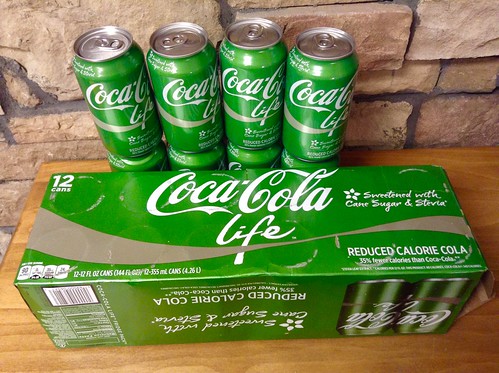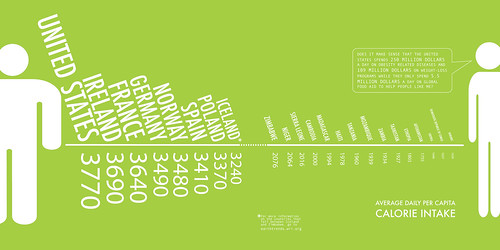To those who may be unfamiliar, greenwashing is a marketing tactic that promotes products as “green” or “healthy” without holding any real benefit to the consumer, the environment, or greater social equity. As mentioned by Jennifer McNulty, “‘buying green’ offers little real defense against environmental hazards and may pose an even greater threat by lulling people into a false sense of security”. This false sense of security is known as inverted quarantine. In this model, people attempt to exclude themselves from problems outside of their own bubble, making them complacent to advertising and feel as if buying “green” products is doing their part.
Photo By: jeepersmedia
While I do believe that some products truly are made with the planet and equity in mind, the bottom line of nearly any business is to make money. There are slim to no regulations on the words companies are allowed to use on their websites and packaging. This means that any company can color their plastic bottles using toxic green dye and slap the word sustainable on the outside and their sales go up. What I believe McNulty missed in her article was a call to action. People consuming more while turning a blind eye to other issues will never be an answer to the world’s problems, but it is impossible to wind back the clock and exist in a time when the world did not revolve around consumerism.
In this way, McNulty’s article reminded me of Michael Pollan’s book In Defense of Food. Pollan also failed to acknowledge many issues of modernity and globalization. He makes the generalization that problems surrounding food and health would be fixed by, “eat[ing] food, not too much, mostly plants” (Pollan 1), most of which would be easier to do in a preindustrial world. Today’s world food problems cannot be addressed without first discussing wealth disparities and global trade. So many of the products people in first world countries consume are built upon the suffering and unjust treatment of workers across seas. If we hope to see any progress with global equity, people must not become numb to the suffering of others.
Photo By: Lauren Manning



I do agree with the notion that greenwashing is harmful to consumers, but what really exacerbates this issue is consumers seeking an easy way out. The collective action problem is driving consumers to partake in easier initiatives like purchasing products that companies are proclaiming as sustainable. This form of slacktivism is harmful and it will take a lot education to teach the public about this misinformation. Furthermore, we are truly living in an age of misinformation and we as a society should stop being complacent with this misinformation spreading. We can start by implement changes in the education system and real legislation that actively targets the spread of misinformation, but it will take a much more conscious effort and critical thinking to actively judge the validity of the information you are exposed to. The more we are led astray by false statements and information, the less we will be able to know how much a real difference we are making, thus issues like food sustainability will be left unanswered.
I really liked this blog post and the greenwashing part of it stood out to me as being connected to local politics. The topic of greenwashing has always been particularly troubling, and in the context of Seattle as a “green city”, more so. As you lay out there are obvious questions about how healthy or environmentally friendly a product actually is because of the lack of regulation around the marketing of these “Green” Products. Additionally, What also troubles me about greenwashing is the extreme markup price that the marketing demands. That markup is why a bottled water can cost 3$+ depending on the brand and Arizona Ice Tea is 1.33$. This connects to the Sweetened beverage tax that the City of Seattle passed this past year. The Tax is silly and ineffective because, while well-intentioned (I think), it only shifts the burden financial more on those who can’t afford to pay the greenwashing premiums. The tax also doesn’t do anything to combat the much higher prices healthier foods command in the current market. So, all in all, I like your blog post and the conclusions it makes about the dangers of Greenwashing and how relevant your piece is in the context of local politics
Hi Katelyn,
I enjoyed your article about green-washing. Moving into the future we are going to need to become more sustainable. Moving from vicious cycles to virtuous cycles. “Green” consumption appears to offer a movement in that direction but you are right in that some of the products are just green-washed. They trying to take advantage of increasing interest in sustainability. I also agree that we need collective action over individualized consumption. And you are also right that we in order to achieve a more sustainable world we need to address inequity and global trade imbalances. I do disagree that people are numb to the suffering of others. The question is what can I do that will make a meaningful difference? Taking policial action has a price in terms of time and capital both of which might be constrained. And unfortunately, there is increasing disengagement in the policial process in America because we intuitively realize that Congress is no longer reactive to the will of the people but their donor. Thus, people make a seemingly rational decision to disengage because they realize their voice is not going to be heard and will cost them. For example, according to Gallup poll, 67 percent of Americans are in favor of stricter gun laws yet Congress has failed to pass a single piece of gun control legislation (http://news.gallup.com/poll/229562/preference-stricter-gun-laws-highest-1993.aspx). Even if the entire country cares about global inequity nothing is likely to happen as long as Congress beholden to big donors. At the root of everything is the need to get money out of US politics. My point is that lack of action might not be from a lack of empathy, numbness or even information about the subject but simply an understanding of the policial reality as well as constraints on their time/money. That is not to say that people should not be engaged and that political activism is not important meaningful and often successful work. What am saying is the people’s disinterest in real collective action is understandable given the state of American politics.
*Political